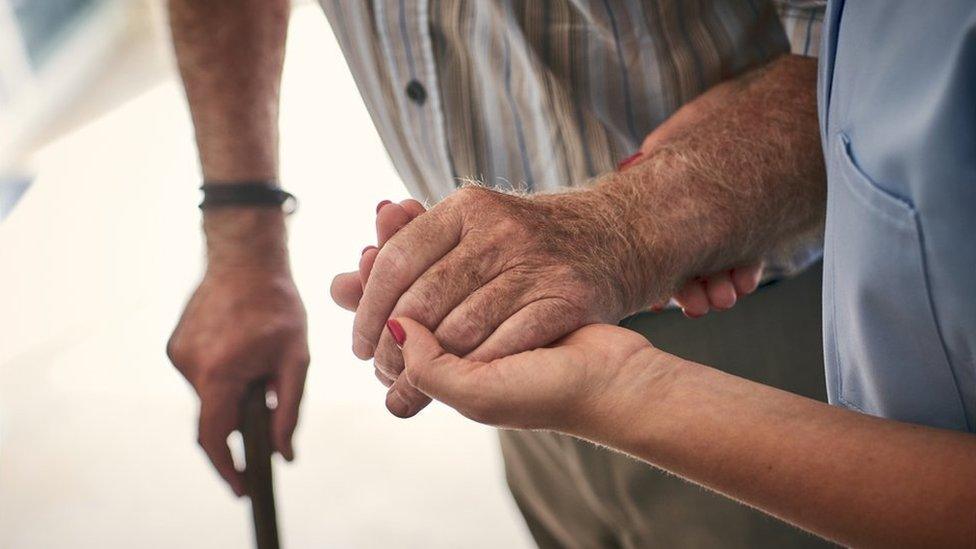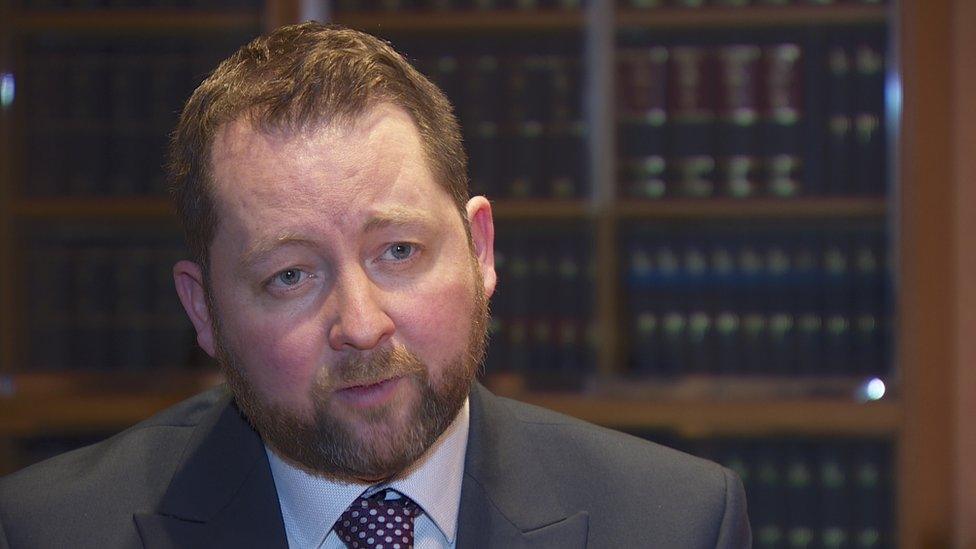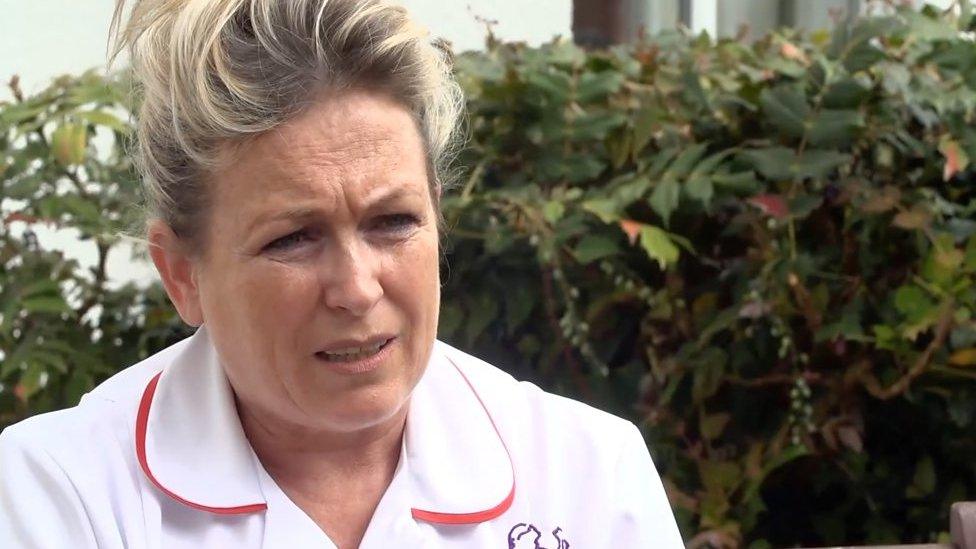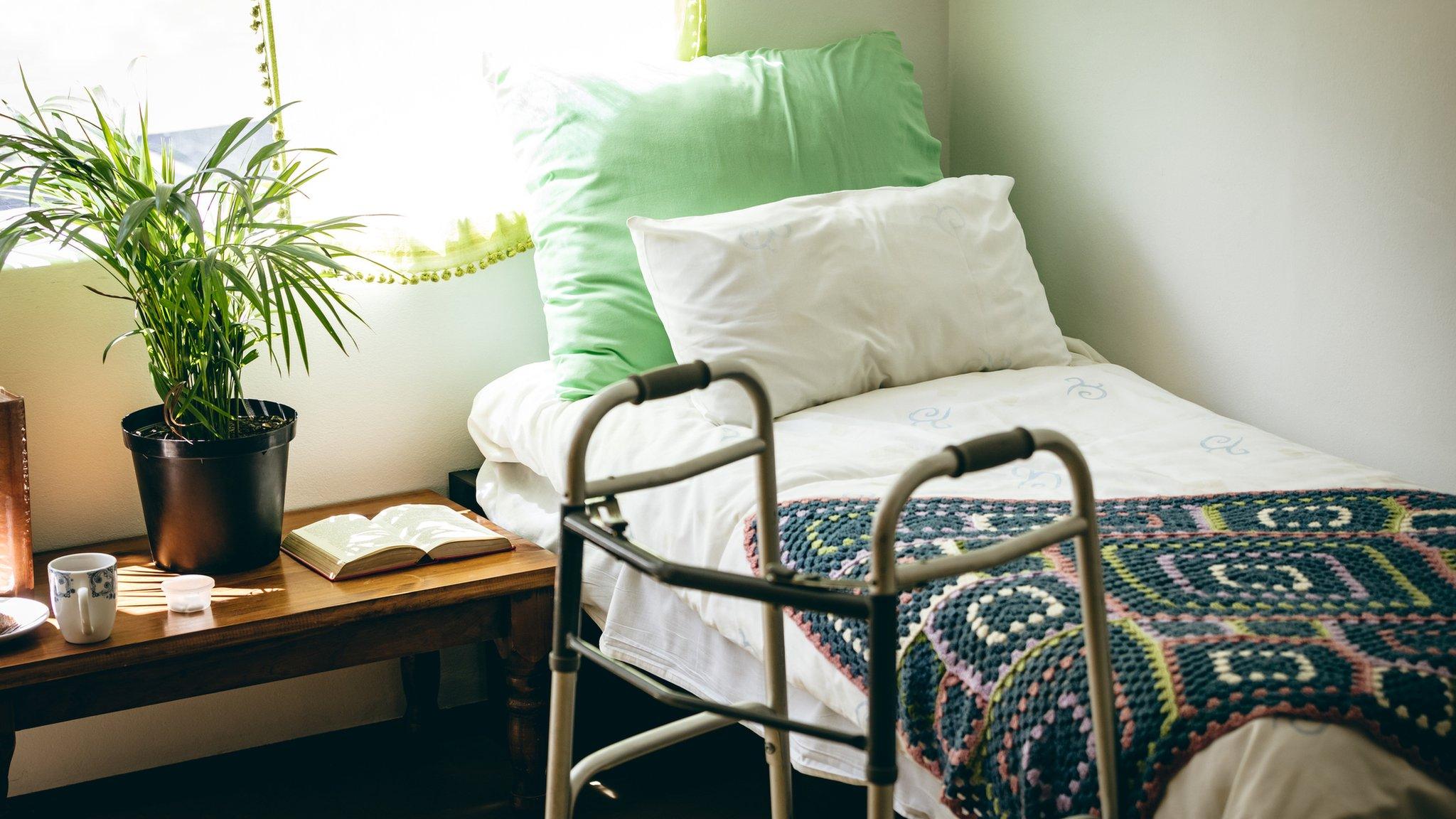Coronavirus: Care home deaths 'higher than official figures'
- Published

The number of deaths linked to Covid-19 in care homes could be higher than official figures say, the commissioner for older people has warned.
Eddie Lynch said some residents' deaths were being recorded as hospital fatalities.
The latest figures show 45% of coronavirus deaths up to 1 May took place in care homes.
The Department of Health (DoH) said it had provided a wide range of support to care homes.
Mr Lynch told BBC News NI: "We know of many homes who have told us that some of their residents were moved to hospital and sadly passed away.
"There is clear evidence now that the number of people now that are unfortunately falling victim to this terrible virus in care homes far outweighs any other setting."
The commissioner was speaking after BBC News NI highlighted the reality facing the care home sector after being given exclusive access inside Massereene Manor in Antrim.
"It was a really insightful report," he said.
"I think it puts a human face to many of the people who are regarded as heroes working in care homes and who are working flat out and the least they deserve is to get the proper equipment to do their jobs and to get tested."
Hospital deaths
According to the latest figures from the Northern Ireland Statistics and Research Agency (Nisra) there have been 232 confirmed Covid-19 deaths in care homes across Northern Ireland up to 1 May - which accounts for 45% of all coronavirus-linked deaths.
These official figures, which are published weekly, reflect where a person has died according to the information on the death certificate.
It means if someone is moved from a residential or nursing home to hospital and then dies with Covid-19, their death is included among the hospital statistics.

Commissioner for Older People Eddie Lynch said it is "shameful" that universal testing had not been rolled out
Mr Lynch said the duty of care rested with the DoH, even though most care homes were privately run.
He said: "They have placed most of those people in those homes and have a duty of care to make sure that the homes themselves, if they are experiencing challenging times that they get properly supported whether it is in equipment, whether it is testing, whether it is staff.
"I think the onus is on the Department of Health to make sure that good health and social care is delivered across no matter what setting that is."
Testing roll-out 'shameful'
Mr Lynch described hearing the first-hand frustrations of care home staff who say they felt they've been "playing second fiddle" to other front line NHS workers in hospitals.
He described it as "shameful" that universal testing had not yet been rolled out.
"I think the Department of Health holds the answers here in relation to providing the proper support for our care homes," he said.
"There has been an uphill battle to get them PPE in the past. There's now a battle to make sure that we roll out universal testing.
"It's only the health minister who can make that decision to introduce universal testing and that has to be the top priority now."
'I didn't want her dying on her own'
There have been also been calls for a public inquiry into how the pandemic has been handled in care homes.
Mr Lynch said: "My focus at the minute is making sure that we do everything in our powers to protect people still in the midst of this battle against Covid."
'Need for major reform'
In response to the commissioner's claims, a Department of Health spokeswoman said that, along with other bodies, the department has provided a "wide range of support to care homes".
"We expect the payments from the £6.5m additional assistance fund to be paid to care homes this Friday," she said.
"Trusts have deployed skilled staff free of charge into care homes all over NI, amounting to thousands of staff hours, day and night.
"These have included specialist palliative care staff to help treat and manage the care of residents at the end of life, and staff with expertise in complex dementia conditions.
"Millions of pieces of PPE have been supplied to care homes and will continue to be supplied as needed.
"We moved before other parts of the UK to increase testing in care homes. All residents and staff are tested when there is an outbreak, and anyone entering a care home is tested 48 hours in advance.
"Our Covid-19 planning for care homes began at the same time as our planning for hospitals. It would be unfair and inaccurate for anyone to suggest otherwise.
"The pandemic has brought into sharp focus the pressing need for major reform of social care," she added.
- Published12 May 2020

- Published12 May 2020
